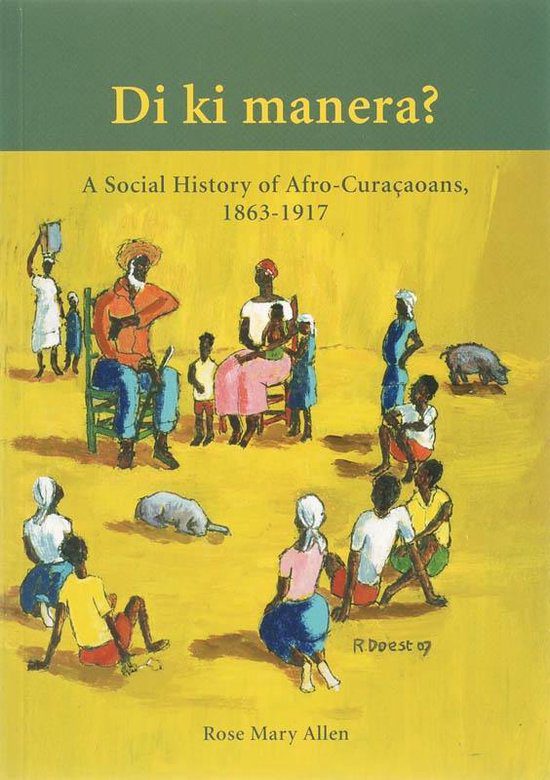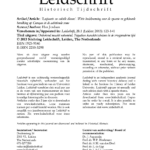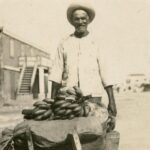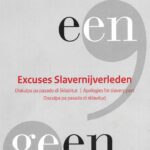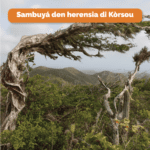In this study Rose-Mary Allen presents the key factors determining the social and cultural life of Afro-Curaçaoans during the first fifty years after the abolition of slavery in 1863. This is done through a socio-cultural analysis of the social system of which they formed part. Their position within slave society will be the starting point, followed by an evaluation of the two principle elements of social control after emancipation: the State and the Roman Catholic Church. Rather than viewing Afro-Curaçaoans as mere objects to be acted upon, in this analysis they are cited as resilient agents, rising to – and often resisting in a variety of ways – the challenges and restrictions they faced in a free society. Their resilience and resistance are best demonstrated through the factors from which they drew their sustenance; these being mainly their social networks – such as families, peer groups, co-workers, local communities – and their culture, brought to the fore, for example, in their songs, stories and rituals.
Sentral den e disertashon di Rose-Mary Allen ta e prosesonan kultural ku a influensiá bida di tur dia di afro-kurasoleñonan despues ku na 1863 a abolí sklabitut. A pone den foko e influensia ku gobièrnu kolonial, doñonan di katibu den nan tempu i prinsipalmente Iglesia katóliko a ehersé riba bida di afro-kurasoleñonan despues di emansipashon. A verifiká tambe kon e grupo akí a duna kontenido propio na e libertat ku nan a haña i kon e hendenan akí a anda ku intervenshon di gobièrnu. E konsepto ‘poder’ den e kaso akí ta di mayor importansia. Poder tabata repartí di forma desigual: desigualdat ekonómiko, sosial i rasial a karakterisá e sosiedat kurasoleño di siglo djesnuebe. E pregunta klave den e tésis akí ta: ki papel gobièrnu, e shonnan, doño di katibu i Iglesia katóliko tabatin den bida di afro-kurasoleñonan despues di emansipashon i di ki manera afro-kurasoleñonan por a duna kontenido na nan bida material, sosial i spiritual tantu paden komo pafó di e ambiente di influensia di e institushonnan akí.
In deze dissertatie van Rose-Mary Allen staan de culturele processen centraal die het dagelijkse leven van Afro-Curaçaoënaars na de afschaffing van de slavernij (1863) hebben beïnvloed. Er wordt gekeken naar de invloed die de koloniale overheid, de voormalige slavenhouders en vooral de Rooms-Katholieke kerk uitoefenden op het leven van de Afro-Curaçaoënaars na de emancipatie.
Ook wordt nagegaan hoe deze groep een eigen invulling gaf aan de vrijheid en hoe zij omging met de interventies van hogerhand. Het begrip macht staat hierbij centraal. Deze was zeer ongelijk verdeeld: economische, sociale en raciale ongelijkheid kenmerkten
de negentiende-eeuwse Curaçaose maatschappij.
De hoofdvraag in het proefschrift luidt: welke rol speelden de overheid, de voormalige slavenhouders en de Rooms-Katholieke kerk in het leven van de Afro-Curaçaoënaars na de emancipatie, en op welke wijze hebben de Afro-Curaçaoënaars zowel binnen als buiten de beïnvloedsferen van deze instituten invulling kunnen geven aan hun materiele, sociale en geestelijke leven.
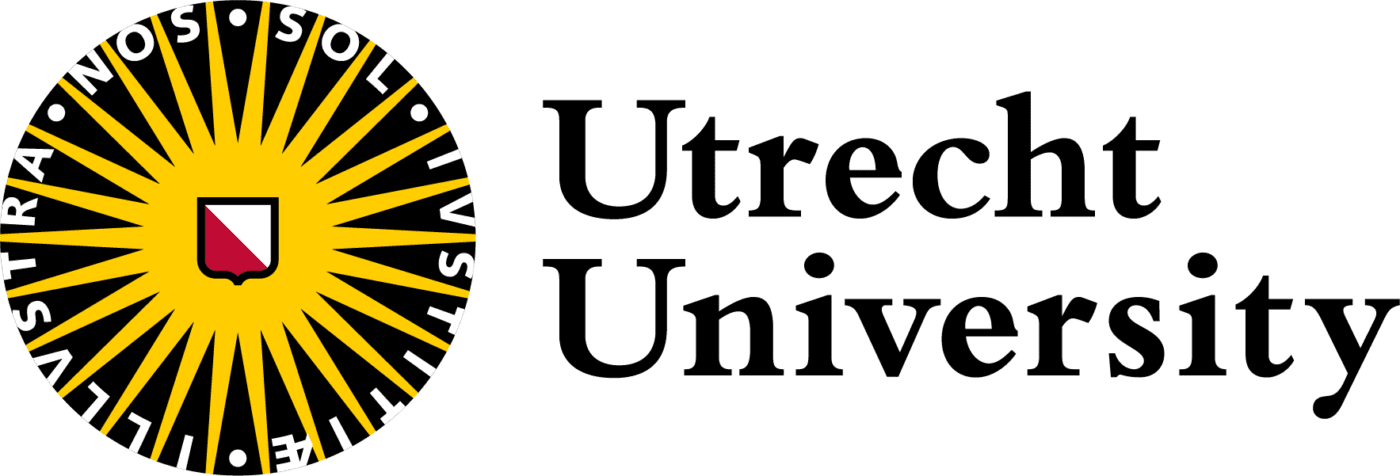
![SMC002-FD-LOGO-500px-[ANI]](https://dutchcaribbeanheritage.org/wp-content/uploads/sites/2/2024/04/SMC002-FD-LOGO-500px-ANI.gif)


